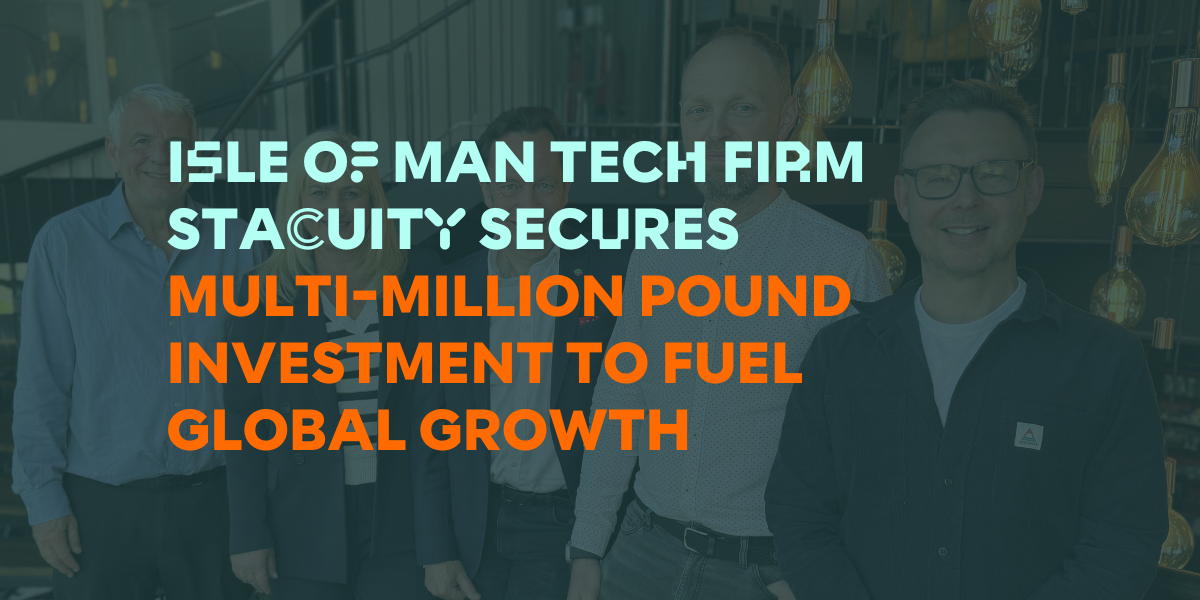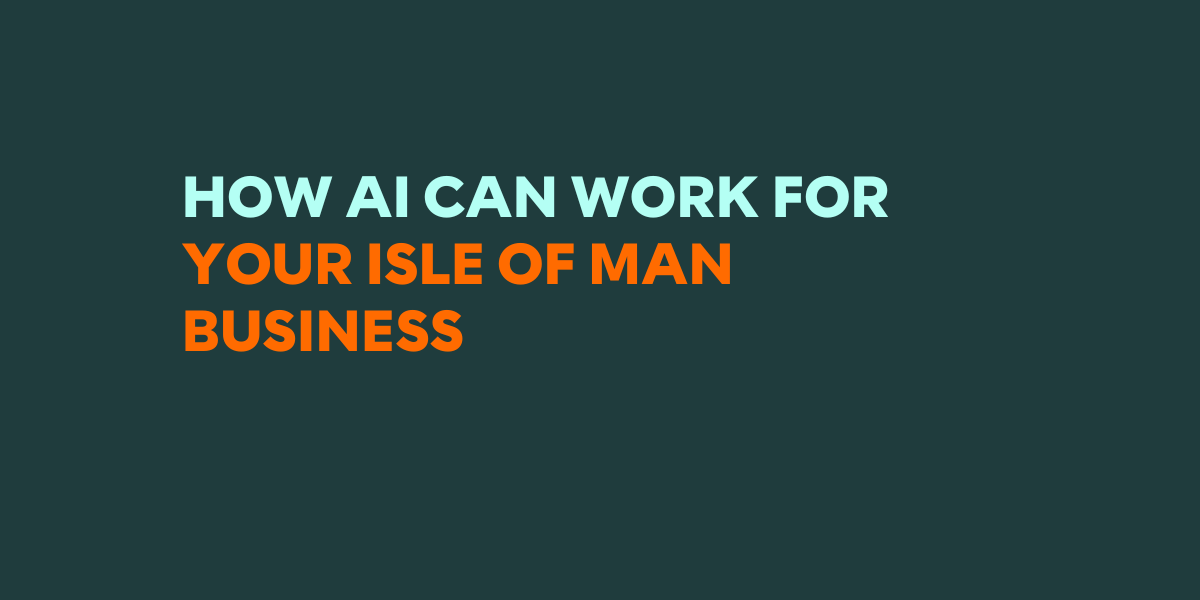Digital Matters: The entrepreneurial ecosystem
14 November 2018

A strong entrepreneurial ecosystem is an essential driver of economic activity in regions around the world. It is becoming an area of focus for governments, city planners, universities, investors and, naturally, entrepreneurs.
There are a number of components that make up such an ecosystem, a few of which are explored further in this article.
Contrary to a recent news piece, the Isle of Man is not the new Silicon Valley, nor should we strive to be.
An entrepreneurial ecosystem on the island should be one that is uniquely our own. It should support small local businesses as well as foreign scale-up companies. It should grow the local economy to the benefit of all island inhabitants.
This article is not, and should not be seen as, a comprehensive guide.
It does not cover education, skills, the presence of a successful cornerstone start-up, office premise availability and lease terms, makerspaces or any of the other elements that could help in an idea becoming a business.
These are all under review, but in this format we are slightly constrained by the word count – please note they are under internal discussion and review by the digital agency, though.
Comments are welcome, especially those that seek to add value or constructively criticise; civil discourse is, after all, one of the markers of a healthy society.
The article below explores some of the elements of a good ecosystem, as well as where the Isle of Man sits in comparison to a handful of other markets.
In this instance, our historic unemployment rate of 0.8% is not working in our favour. Why start a risky new venture if stable jobs are easy to come by? This does not stop everyone, of course, but it may put a dampener on entrepreneurial activities generally.
Similarly, if there is not a pool of available talent for a start-up to tap into when expanding, they are less likely to consider starting on the Isle of Man. This concern has been raised by a number of companies that have the Isle on their shortlist of “region to move the business to” and is seen as a barrier to growth by the Chamber of Commerce as well.
Please note that by no means are we suggesting that rampant unemployment is desirable here, simply that the wide availability of stable jobs needs to be considered when planning changes to encourage entrepreneurial activity.
Furthermore, the maturity of the entrepreneurial ecosystem is also important when viewed in relation to a region’s unemployment rate.
Ours is less mature than some. Lisbon is maturing and as such needs a strong and risk-taking talent pool as well as significant capital influxes, Silicon Valley is mature and therefore relatively self-sustaining.
In terms of developing our pool of talent on the Isle of Man, there are groups such as Love Tech and the Code Club who are focused on inspiring the next generation in key areas.
Do the current work permit and immigration rules help or hinder in this area? This requires further exploration.
In this area, we excel. We do perhaps suffer a bit from Vitamin D deficiency in winters, but that is a small price to pay for no earthquakes, hurricanes, tornadoes, volcanoes, warring nations next door or food deficits. Our internet could be faster (and will be over the coming years), but it does not suffer outages. Our water is clean, our air is pure, our soil seems able to grow just about anything. We are not perfect, no place is, but surely we must be amongst the most fortunate.
The Isle of Man does well and poorly here. From a personal safety perspective, we are exceptional. The value of this should not be underestimated; other parts of the world actively working on their entrepreneurial ecosystems do not have this benefit.
For example, in Puerto Rico the admirable Parallel 18 provides intellectual capital, financial capital, office space and more to start-ups. However, their murder rate has spiked since Hurricane Maria devastated the country. Weighing a high murder rate against a $40,000 government grant puts things into perspective for any nomadic entrepreneur. We are also the first entire island nation in the world to receive the Unesco Biosphere accolade, highlighting the Isle of Man as a special place to live, work and visit.
With that said, the Isle of Man does not have the café lifestyle that can be found in larger European areas. The weather here is said to be a reason, but there are many places in the world with harsher winters and a thriving nightlife.
As proposed in the draft area plan for the east, converting empty office spaces in the Douglas town centre into flats could have a positive impact on our local entertainment options. And we’ve had some spectacularly good restaurants and high-end drinking establishments open recently, which seem to be thriving and which will hopefully encourage more investment into the social infrastructure.
Other regions, such as London and Amsterdam, employ a Night Mayor or Night Czar, someone responsible for developing healthy nightlife opportunities. Although pubs abound on our island, the lack of entertainment options for those who prefer wine, cocktails or something to do besides drink is still a weak spot for the island; however, it is improving.
As pithy and satisfyingly alliterative as it is, “freedom to flourish” does not adequately describe the support needed by start-ups to thrive, nor was that intended. “Cheap legal fees, short-term desk rental, low-cost internet and power, easy company registration and clear guidelines for governance” is more like it, although that would be far less likely to pass the desk of a copy editor or marketeer. New businesses and business units need support or they will die on the vine.
Examples of support include the mentorships offered through the government’s Micro Business Support Scheme, and through various individuals on the island. The Chamber of Commerce’s new Concierge Service will also be an asset to the island, and will complement the wonderful work that the ladies at B Local have been doing for years. There is still work to be done here; in Estonia it takes three hours to register a business and 98% of companies are established online.
No corporate tax is a game-changing boon for mature businesses; for start-ups it is less relevant. 0% or 40% tax does not matter for a business that may not be profitable for years.
Instead, start-ups need money. Sometimes a lot of money. Bridging the gap between a cash-starved entrepreneur and a cautious investor is something that Bridge, Manninvest and other investor networks on the island have been working towards.
There are multiple types of funding available to entrepreneurs, including:
Friends and family
Family and friends are often the first port of call for entrepreneurs, especially in the early days of the business. Not everyone has a wealthy uncle, however, so thankfully other forms are also quite common.
Loans
These are often issued by banks, but the Isle of Man Government does offer loans as well to new businesses.
Venture capitalists [VCs] and investor networks and syndicates
It is fair to say that the Enterprise Development Scheme (EDS), despite the good intentions and best efforts of the parties involved, has not succeeded to date. For this reason, the scheme’s managers and the Department for Enterprise are parting ways.
The new direction for the scheme is under review and further news will be forthcoming either when the current fund managers step away in January or earlier.
With that said, the EDS was only intended to be one part of the investment puzzle.
There are a handful of investor networks on the island, although to date there are no syndicates that we are aware of. These networks are open to speaking with people who wish to join in, so if you are currently sleeping on a mattress stuffed with cash (or the equivalent in a bank balance), please give a thought to speaking with some of the local investor groups. These groups do wonderful things for helping start up local businesses.
Government grants
The Isle of Man Government offers a Micro Business Grant Scheme to start-ups, details of which can be found at www.iomdfenterprise.im. They have helped a large number of local businesses establish, including Noa Bakehouse, Next Level Nutrition and 1st Care at Home. The Department for Enterprise also offers nine other schemes designed to support new and growing businesses.
Crowdfunding
There is no crowdfunding platform on the island, and the reasons why are being investigated by the Treasury, which recently issued a consultation on one element of the regulations. Hopefully in future this is a gap that can be filled.
Both the business and digital agencies within the Department for Enterprise have identified the need to bolster the Isle of Man’s entrepreneurial ecosystem. In fact, the opportunity to attempt this prompted my own application for the chair position.
The agencies are not the only bodies researching this; multiple other groups and people are focusing their attention on it. Multiple perspectives and collaboration between these parties will only strengthen the efforts in this area.
A good entrepreneurial ecosystem is not just for digital businesses, and because of that we taking a wider view than of simply those businesses built around technologies. We have found that the needs of start-up businesses are often similar, whether you are opening a dog grooming parlour (there’s a gap in the market here) or regtech on the blockchain (arguably, also a gap here). Funding, support, business education, premises and staff are often required for all types of start-ups, although the shape and scope of each of these will vary. We have commissioned a piece of work from a consultancy that works solely on start-up infrastructures within regions. The result of their work will be made public once done.
We think it will help to highlight strengths, weaknesses and gaps on the Isle of Man, and we are looking forward to taking that work and our own to make plans to develop and nurture our local entrepreneurial ecosystem to the benefit of all.
Lydia Barbara is the chairman of the Digital agency at the Department for Enterprise and the Head of Innovation Strategy for Microgaming. Originally from the US, she has lived on the Isle of Man for nine years following a four year stint in Malta.





